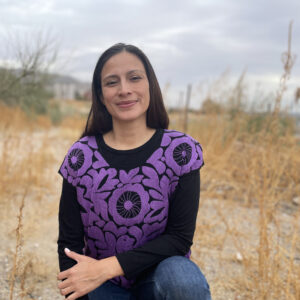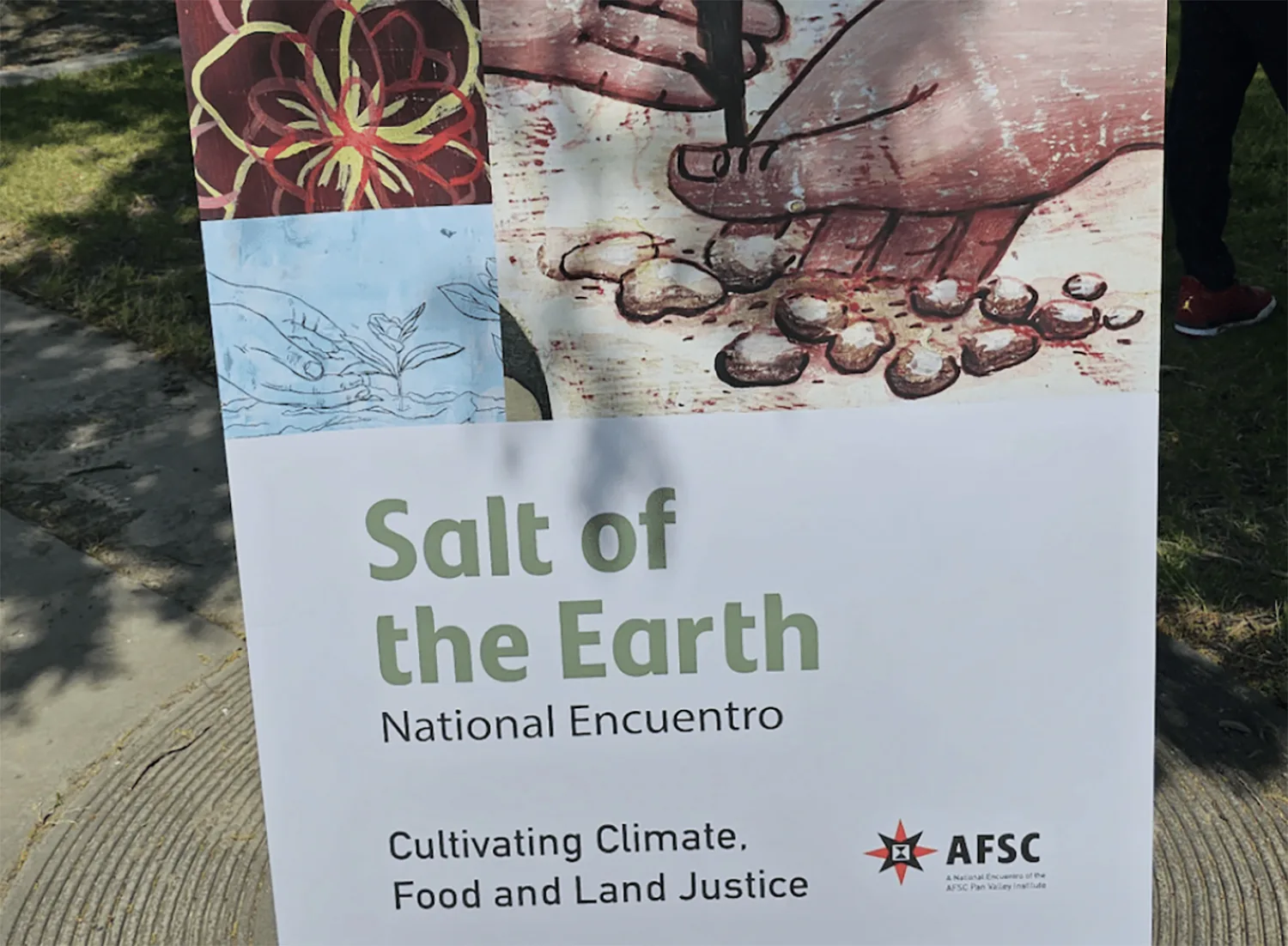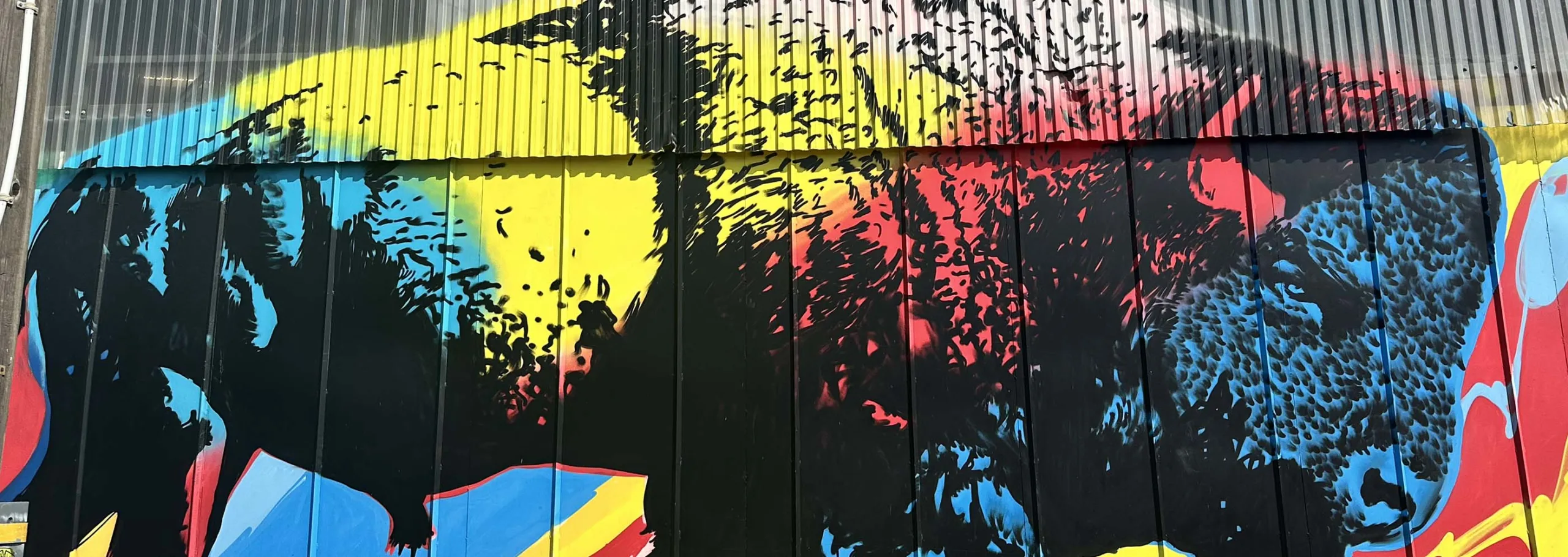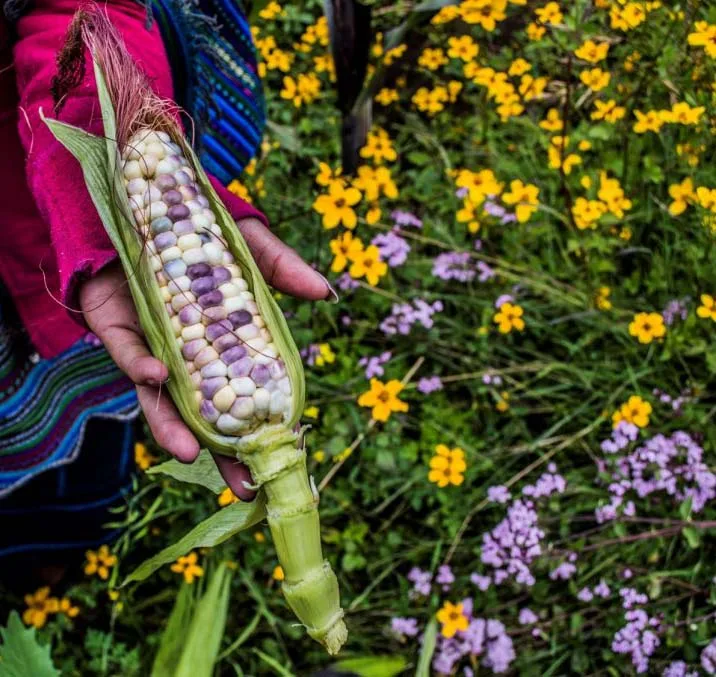“Peek through the husk,” my mom said, holding the fresh ear of corn. I recognized this as an abuelita knowledge moment; she was channeling an embodied wisdom I had first witnessed in my grandmother. “The good ones will have full, shiny kernels even up to the tip.”
The work of soil farming is work of repair - of healing soil organisms from the impacts of rupture, excessive tilling and extraction via ownership and domination that were thrust upon it through the colonial culture of seeing land as a naturally exploitable resource - the foundation of industrial food and commodities production.
To holistically repair food systems, we must address the rupture, extraction, and domination that continues to occur in our ways of knowing and being1 that define cultivation and use of food, medicine and fibers. For the last fourteen years, I have been working to rekindle relationships with food traditions in El Paso, TX. This work has included unearthing what early colonists did to, and said about, key Mesoamerican foods including:
- Amaranth. Its wild greens (bledos) became synonymous with something worthless. The Spanish phrase “me vale un bledo” loosely translating to “I don’t give a sh*t.” Spanish missionaries considered it a heretical plant due to its ceremonial role in Indigenous spirituality; this led in part to outlawing its cultivation and the possession of its seeds.
- Nopal. They called it a “monstrous tree” and didn’t immediately send samples to Spain - prioritizing gold and sunflowers, for example.
- Spirulina. They called it a “poor and rustic tasting food” - and how did they know? Because, according to their diaries, the Spanish palette defined taste.
It was this research that led me to understand that foodways (the manner food is grown, distributed, and shared) are tied to wordways (cultural narratives - particularly those that accompany food and food traditions).

Giant amaranth plants glowing in El Paso
The erasure of knowledge and systems, the burning of fields, the banning of plants and their ceremonies, the creation of dependency on an industrial agricultural system that poisons our bodies, the ecosystem and harms workers - are just some of the ways that colonial culture turned what could be sacred, healing, land-based practice of belonging into a persistent cycle of fracture.
And what has happened to the living land, has also happened to the people. Imposed hierarchies have made some people less valued than others in the view of the dominant culture, underpinned by white supremacy and patriarchy. It fails to see many of us as human beings. Some it even deems ‘illegal.’ Many are seen as inferior, expendable - only good as a source of labor to be mined, pleasure to be extracted, culture to be appropriated. The melanated, the Native, the immigrant, the woman, femme, gender-nonconforming, queer.
My undergraduate training in health education unfortunately focused on individual-level and deeply siloed interventions: just tell people a certain vegetable is high in a certain nutrient, and surely they will change their behaviors. In my graduate studies, I learned about the social determinants of health - how systems shape the choices we even have. But it has been my training with regional community organizers where I learned that foodways are a matter of belonging - to landscapes and to land-based culture. They are a matter of cultural identity - of the stories we tell about where we come from and who we strive to be. Sharing the nutritional content of amaranth only went so far. However, sharing our history in relation to it ignited familial practice and motivated rebellion against cultural erasure. In my community, folks became not only amaranth eaters but stewards, tending and sharing seeds - creating their own stories.

La Semilla Food Center, Edible Education workshop on harvesting amaranth seed.
As I awaken my own story of boldness and cultural healing, I welcome opportunities that challenge my conditioning towards smallness as a brown femme. Which is exactly what was presented when I was invited to speak at the Oxford Real Farming Conference in the UK. The session highlighted forward thinking media projects that share a counter vision of rematriation of land and politics through the lens of food and agriculture.
Oxford was a juxtaposition of chirping birds, mossy bliss and streams against the expensively maintained ivory towers of European academia that has provided the roadmap of colonial dominance and hierarchy. My silent query as I navigated those damp streets: Tell me ancestors, why you’ve brought me here, of all places. Show me the shiny kernels.

La Semilla Food Center, Edible Education workshop on harvesting amaranth seed.
It doesn’t happen often with conferences, but this one shifted something in me. In writing this, I reflected on the reasons why. I met Black and Brown women with shared visions. Esperanza Pallana, Kelly Carlisle, Shaniece Alexander and I shared meals while discussing painful community issues and loving solutions; asked questions that led to dreamscapes, questioning white supremacy and patriarchal standard; nerded out on literature, and discussed what it means to be an aunty. Vandana Shiva an hour before our panel - called out hollow power structures that we can and must work against as we value traditional ecological knowledge. Mama D. Ujuaje2 during our panel’s Q&A - powerfully named how patriarchy removes people from the land and from Indigeneity. These were the shiny kernels.

Rubi Orozco Santos with Vananda Shiva
Rematriation is Indigenous women-led work, it involves tangible repair - returning land, seeds, and cultural artifacts to Indigenous people - and it also involves tending ancestral ways of knowing, valuing traditional knowledge, cultivating relationships and belonging.
The efforts I undertake alongside my community are for folks living in the United States under the weathering pressure to assimilate and acculturate to the current version of colonial system and its accompanying narratives of hierarchy. It matters to me that we create the opportunity to bring our heritage food and agricultural wisdom into future practice and adaptations.
Just as soil farmers trust the soil organisms to know what to do to reconnect and flourish with strategic inputs, providing resourcing, restoration, and support of narrative and cultural work - particularly that led by women, femmes, gender non conforming people, queer folks, and immigrant people - will generate the space for the divine intelligence of our soils to regenerate.
- I resonate deeply with and draw from Kiley Arroyos’ soil keeping framework (2021), learn more.
- Mama D Ujuaje works with Community Centred Knowledge.

Latest News

2025 Wildseeds Grantees

2025 Wildseeds Beneficiarixs


